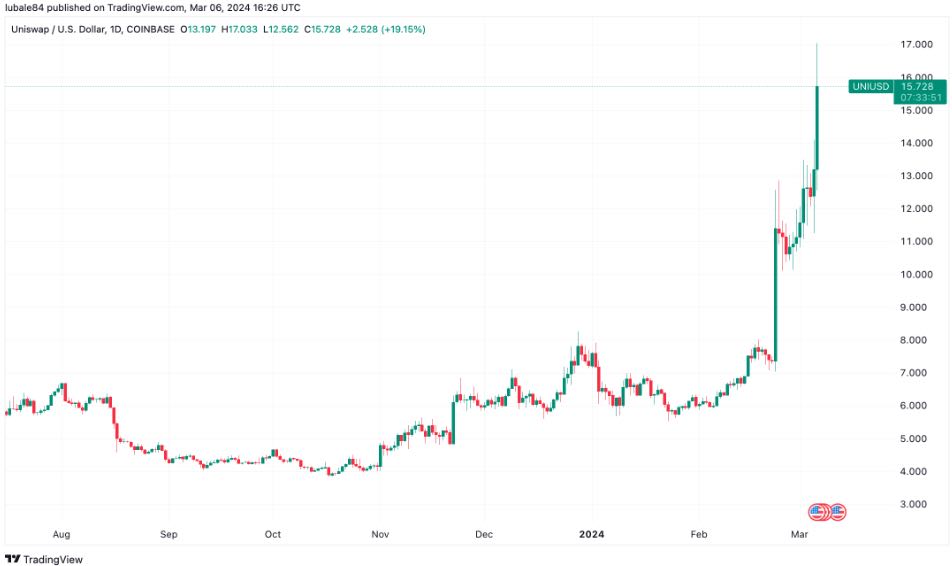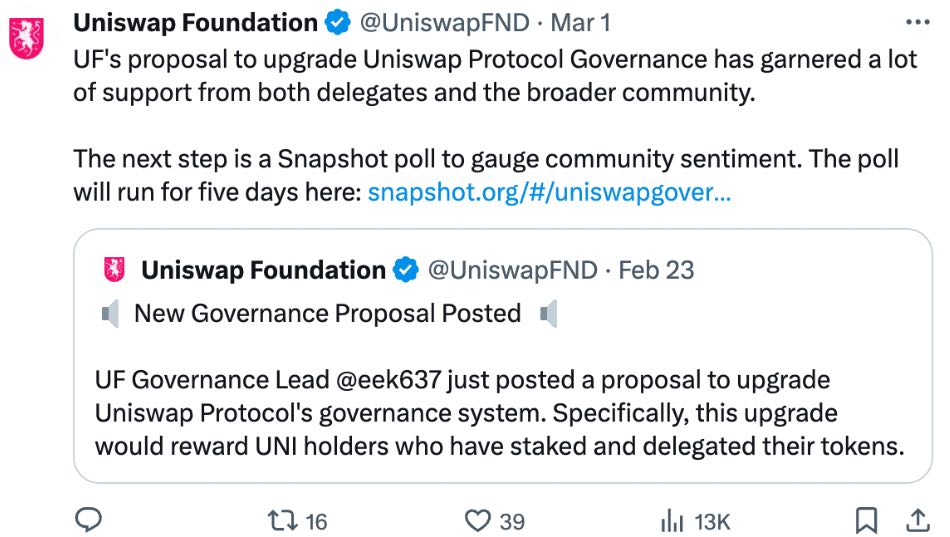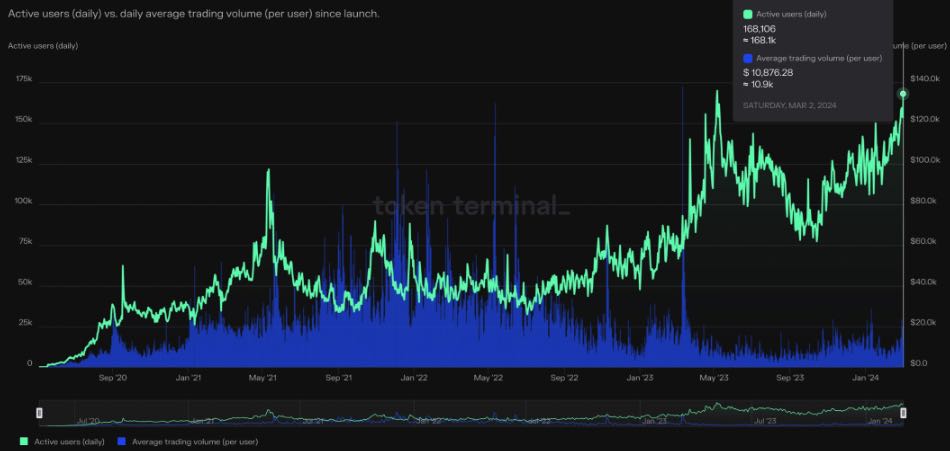As the cryptocurrency market continues to ebb and flow with the tides of innovation and regulation, Uniswap (UNI) has emerged as a beacon of resilience and potential. Recently, UNI hit a 2-year high, a remarkable feat in the volatile crypto landscape. This surge is closely tied to the impending deadline of a highly anticipated fee share proposal, sparking debate among investors, developers, and users alike. This article delves into the intricacies of this proposal, its implications for Uniswap’s ecosystem, and the broader ramifications for the DeFi (Decentralized Finance) space.
Table of Contents,

At the heart of UNI’s recent price rally is the proposed introduction of a fee share mechanism for UNI token holders. This proposal, if passed, would mark a significant shift in Uniswap’s protocol, allowing token holders to earn a portion of the transaction fees generated by the exchange. Proponents argue that this move could transform UNI from a governance token into a cash-flow generating asset, thereby increasing its intrinsic value.
Argument 1: Enhancing UNI’s Value Proposition
Supporters of the fee share proposal contend that by providing direct financial incentives to UNI holders, Uniswap is not only enhancing the token’s value proposition but also aligning the interests of investors with the long-term success of the platform. This alignment is crucial for the sustainability of decentralized protocols, as it fosters a more engaged and invested community.
Argument 2: Attracting Long-Term Investors
Another argument in favor of the proposal is its potential to attract long-term investors. By offering a share of transaction fees, Uniswap could appeal to a broader base of investors seeking not just speculative gains but also passive income streams. This could lead to increased demand for UNI, stabilizing its price and potentially reducing volatility.
Counterargument: Potential Risks and Challenges

However, critics of the proposal raise several concerns. First, there’s the risk of regulatory scrutiny, as offering fee shares could classify UNI as a security in some jurisdictions, complicating its legal status. Furthermore, detractors argue that diverting a portion of fees to token holders could diminish the resources available for reinvesting in the platform’s development, potentially stifling innovation and growth.
The DeFi Ecosystem: Broader Implications
The outcome of Uniswap’s fee share proposal holds implications beyond UNI’s market price. It represents a litmus test for the feasibility of incorporating income-generating mechanisms into DeFi tokens. Success could pave the way for similar initiatives across the sector, while failure or regulatory pushback could caution other platforms against such moves.
Conclusion: A Defining Moment for Uniswap and DeFi

As the deadline for Uniswap’s fee share proposal approaches, the crypto community watches with bated breath. This moment is more than just a potential inflection point for UNI’s valuation; it’s a critical test of the DeFi ecosystem’s capacity for innovation, community engagement, and regulatory navigation. Regardless of the outcome, Uniswap’s initiative underscores the dynamic and evolving nature of DeFi, offering valuable lessons for platforms and investors alike in the quest for sustainable growth and value creation in the decentralized world.
For enthusiasts, developers, and investors tuned into the latest cryptocurrency news and trends, the developments around Uniswap and its fee share proposal represent a pivotal chapter in the DeFi narrative, one that decentrahacks.com continues to analyze and explore with expert insight and foresight.



